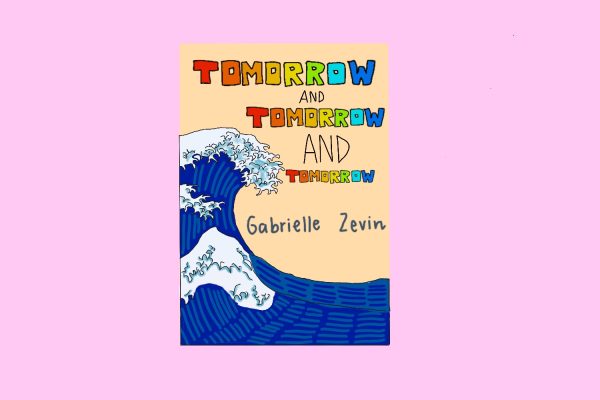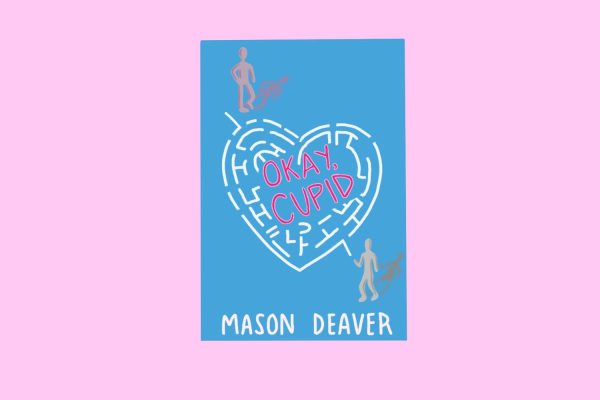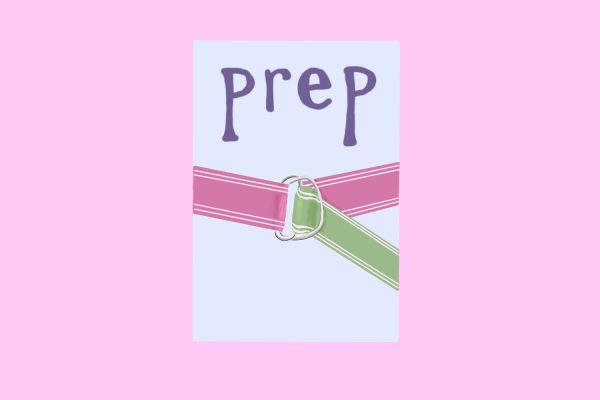“Happy Hour” by Marlowe Granados
— Alexa Donovan, Deputy Arts Editor

New York in the summer has a particular feeling to it. The feeling may just be one of thick, thick air, but there’s still something peculiarly special about the heat emitting off of fellow New Yorkers in the subway car and the lazy drags of people’s feet on the hot pavement. I felt like this while reading “Happy Hour,” as I was transported into Isa and her best friend Gala’s New York City summer.
Isa and Gala are Londoners who move to New York with almost nothing to their names. They share a single subletted bedroom in Bedford-Stuyvesant, Brooklyn, and vow to have the most fun summer of their lives, despite their dire financial circumstances. By day, they sell clothing at flea markets, and by night they party and explore New York with generous friends.
The book brings us alongside the girls from May through the beginning of September, and we get to have fun, laugh and fight with them, too. There really is no plot to pay attention to, only feelings to be felt through the friends’ wild nights and horrible decisions. The book practically radiates warmth and makes me so desperately crave the sun permeating my skin.
“Tomorrow, and Tomorrow, and Tomorrow” by Gabrielle Zevin
— Diana C. Sánchez González, Staff Writer

“Tomorrow, and Tomorrow, and Tomorrow” by Gabrielle Zevin is like no book I’ve ever read before, or at least, one of the very rare ones I’m always craving to stumble onto.
Sam and Sadie first met as tweens in a hospital game room, passing the remote control back and forth as they played “Super Mario Bros.” Their friendship grew around playing games together. As time goes on, they drift in and out of each other’s lives — sometimes even fighting — but their love for games always ties them together. Sadie studies at MIT while Sam and his roommate Marx study at Harvard — the three of them work to create the next great video game and, eventually, video game company. Together, they get to revel in the world of games — “the possibility of infinite rebirth, infinite redemption. The idea that if you keep playing, you could win. No loss is permanent, because nothing is permanent, ever.”
The book seamlessly and magically weaves things we are constantly trying to understand about human interactions — love, heartbreak, grief, relationships, friendship, family, ambition, failure and success — into every single page. Zevin embroiders the prose in this book with such beautiful intention, and I felt as though I had to write down every single line, memorizing the text to hold onto forever.
“Okay, Cupid” by Mason Deaver
— Molly Koch, Opinion Editor

“Okay, Cupid” is a delightful plunge into the world of light fantasy, redefining the dynamics of love. The protagonist Jude is a nonbinary Cupid on a mission in a high school to reunite two best friends, destined for a relationship, while finding queer and trans joy along the way. Deaver’s prose makes every character shine, but the stand-out is the love interest, Huy, whose rapid connection with Jude adds a page-turning factor to the plot.
This tale not only explores the exhilarating rush of romance, but also reflects society more generally. The cupid premise serves as a metaphor for societal norms that suppress queer love, echoing the struggles of acceptance and self-discovery. Deaver navigates family as well, pushing the boundaries of how queer and transgender youth are finding their support systems.
Ultimately, “Okay, Cupid” is not just a love story; it’s a story about resilience and the power of being yourself. If you hate romances that wrap up with a perfect little bow, and you simply need a book to make you contemplate your life, then this one’s for you.
“Prep” by Curtis Sittenfeld
— Josie Leach, Contributing Writer

“Prep” by Curtis Sittenfeld follows the life of Midwesterner Lee Fiora at her fancy east coast boarding school, which she attends on scholarship. Lee struggles to fit in with her well-polished peers and is desperate to make connections, but she is constantly overthinking.
Sittenfeld’s attention to detail is striking, and even more commendable is the author’s ability to embody the mind of a self-conscious teenage girl with such authenticity. Lee is far from a perfect person; she is at times desperate, uninspired, closed-off and even cruel, to her parents and herself. This truthfulness is the beauty of the book — it’s a glimpse inside the teenage mind and all of its complexities.
The blatant honesty in “Prep” is refreshing, and there is not a hint of romanticization in Lee’s retrospective gaze at her teenage years. For those of you who went to boarding school, be prepared to queue a whole lot of buried memories. And for those of you who did not, get ready to dive into the not-so-polished side of the uniformed universe of boarding schools.
Contact the Arts Desk at [email protected].

























































































































































